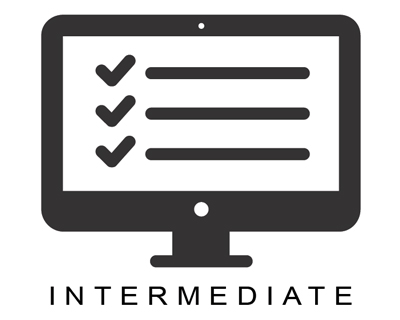• Air Pollution Control Rules in California can limit compost industry expansion • Emissions Reduction Credits (ERCs) are becoming either so expensive, or not available, that building new facilities may be practically prohibitive • New strategies to address this problem need to be developedSpeakers: Kevin BarnesDuration: 20 minutesCredits: 0.5Member Price: $30.00Non-Member Price: $52.50Purchase Course Now
Category: Intermediate
MAR.223-Compost in Retail Markets – How does SB1383 Procurement affect the Retail Customer, Backyard Gardener and Landscape Professional-AC23.USCC
Composters who serve the retail market are necessary for last mile compost application strategies, and are able to interact with emerging composting regulations, jurisdictions, and composters of various scales in multiple ways in order to promote a regenerative food economy.Speakers: Kathy Kellogg-JohnsonDuration: 21 minutesCredits: 0.5Member Price: $30.00Non-Member Price: $52.50Purchase Course Now
MAR.222-Differentiating the Value and Cost of Compost Across Likely Farm Use Scenarios in Western Washington-AC23.USCC
Compost can have a wide range of values depending on the cropping system and the application rate needed for impacts. Under reasonable assumptions, compost value exceeded cost for some, but not all, crops in our study area. Ongoing efforts to overcome barriers to use in these crops is worthwhile.Speakers: Karen HillsDuration: 26 minutesCredits: 0.5Member Price:… Continue reading MAR.222-Differentiating the Value and Cost of Compost Across Likely Farm Use Scenarios in Western Washington-AC23.USCC
POL.221-Why On-Farm Composting Matters & How to Expand it-AC23.USCC
Expanding composting on farms is critical for both creating a more resilient composting infrastructure and making high-quality compost more accessible for improving soil health on farms. Participants will leave with a clear understanding of the importance of on-farm composting and compost use and how to promote both.Speakers: Linda Bilsens-BrolisDuration: 14 minutesCredits: 0.5Member Price: $30.00Non-Member Price:… Continue reading POL.221-Why On-Farm Composting Matters & How to Expand it-AC23.USCC
POL.220-Leveraging CA’s New Compost Regulations for Carbon Sequestration – Jurisdictions Teaming up with Ag and Businesses on Carbon Farming-AC23.USCC
– Jurisdictions can meet procurement through carbon farming, within their desired budgets because ZFP will identify projects, identify farmer cost-share and provide our own cost-sharing (when possible). – Composters can encourage price premiums and/or generate more quote requests through Compost.Ag.Speakers: Leo BeckermanDuration: 18 minutesCredits: 0.5Member Price: $30.00Non-Member Price: $52.50Purchase Course Now
VIS.217-Healthy Soils for Healthy Parks: Los Angeles Urban Carbon Farm at Griffith Park-AC23.USCC
New Carbon Parks: Integrated community composting and regenerative land management practices are envisioned as a new park model centered around carbon sequestration, climate resiliency, and community well-being. High quality, biologically active compost further strengthens soil C sequestration. Centering community contribution, participation, and education supports environmental justice and healthy communities.Speakers: Lynn FangDuration: 20 minutesCredits: 0.5Member Price:… Continue reading VIS.217-Healthy Soils for Healthy Parks: Los Angeles Urban Carbon Farm at Griffith Park-AC23.USCC
PRO.218-Connecting VOC Emissions to Compost Process Parameters-AC23.CREF
Optimizing process parameters can reduce VOC emissions..Speakers: Matt CottonDuration: 28 minutesCredits: 0.5Member Price: $30.00Non-Member Price: $52.50Purchase Course Now
BUS.240-Developing Community-based Composting in an Urban Setting-AC23.USCC
– Development of a replicable model for community-based composting. – Multi-stakeholder collaboration, representing universities, non-profits, and local neighborhood to build a hub and spoke organics diversion and community composting system to help meet the demand and supply needs of a large urban city.Speakers: Renee WallaceDuration: 18 minutesCredits: 0.5Member Price: $30.00Non-Member Price: $52.50Purchase Course Now
VIS.216-Utilizing Collaboration to Improve Rural Regional Organic Diversion-AC23.USCC
– Multi-stakeholder collaboration, representing entire organics value chain, to drive improvement in a rural setting – Utilizing systems practice helps to create enduring social change through mapping the current system and identifying leverage points. – Model for gaining organics diversion and compost end-market developmentSpeakers: Nicole ChardoulDuration: 27 minutesCredits: 0.5Member Price: $30.00Non-Member Price: $52.50Purchase Course Now
POL.226-Model Compost Procurement Policy: Accelerating Action to Close the Organics Recycling Loop-AC23.USCC
To date, closing the organics recycling loop by requiring compost purchases is an underutilized tool in municipal efforts to manage organic waste sustainably and cost-effectively. Composting is an effective way to reduce food waste in cities, by turning food scraps into a natural soil amendment that can be used in city gardens and landscaping and… Continue reading POL.226-Model Compost Procurement Policy: Accelerating Action to Close the Organics Recycling Loop-AC23.USCC
